With car prices ranging from $20,000 to a whopping $45,000, it’s no wonder many car buyers are asking questions like, “what car should I buy?” or “what car is right for me?” on the internet. If you are one of them, we’ve put together this incredibly informative piece that makes car shopping a pleasant experience rather than a confusing and expensive nightmare.
Table of Contents
1. Choose Between New vs. Used Car
Before asking yourself, “what car should I buy,” the first thing to decide is whether you want to go for a new model or an older and used one.
Used cars can save you money, but there are some things you need to look out for. A used car that’s only a year old could be cheaper than a brand-new model and will also have lower depreciation rates, meaning it might cost less to keep on the road. However, used cars may also come with hidden problems that mean they need more repairs.
2. Select a Car Type Based on Your Lifestyle & Needs
Whether you are planning to buy a new vehicle or secondhand, choosing one that caters to your needs and way of life is always recommended.
If you’re someone who needs ample cargo space for tools or fishing equipment, you might want to opt for a pickup truck. If you have a family, an MPV vehicle has more seating capacity. In contrast, a compact hatchback or mid-size sedan is more appropriate for everyday city-driving.
| Car Type | Number of seats | Size Options | Average Cost | What to Consider |
| Sedan | Five | Compact, mid-size, full-size | $30,000 | More legroom compared to a hatchback but smaller cargo space. It also has a larger engine than a hatchback. |
| Hatchback | Four to Five | Compact, subcompact, mid-size | $30,000 | Large cargo space than a sedan but smaller legroom. Engine size is typically 1.0. |
| SUV | Five to Nine | Mini, compact, mid-size, full-size, extended-length | $55,000 | Massive in size and versatile on the road. Cargo space depends on the size. |
| Pickup | Five to Six | Mid-size and full-size | $40,000 | Largest cargo space but at the expense of seating capacity. |
Sedan
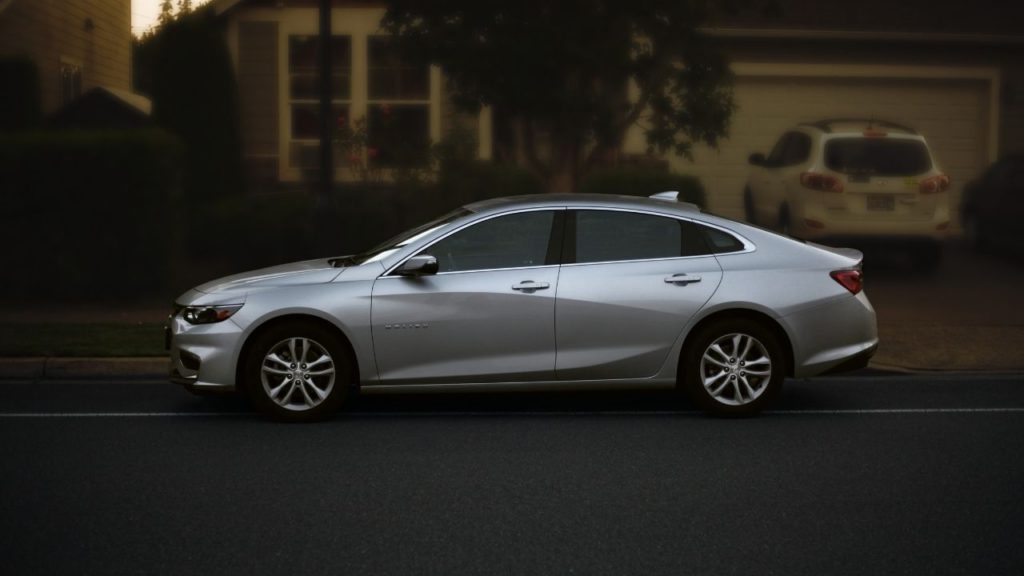
Sedans are good city cars because they’re easy to drive. Plus, they have a low ground clearance meaning you can get in and out of the vehicle without effort. Most have ample trunk space for two to three luggage, but some sedans have foldable rear seats if you need more space.
Pros
- Spacious legroom, especially in the backseat
- Easier to handle and drive than a pickup or SUV
- Cheaper than a SUV or pickup
- Great option for city-driving
- Fuel-efficient, with hybrids and electric options
Cons
- Less cargo space
- Less legroom versus a SUV
- Not best for off-road driving
- Not enough power for hauling
Hatchback
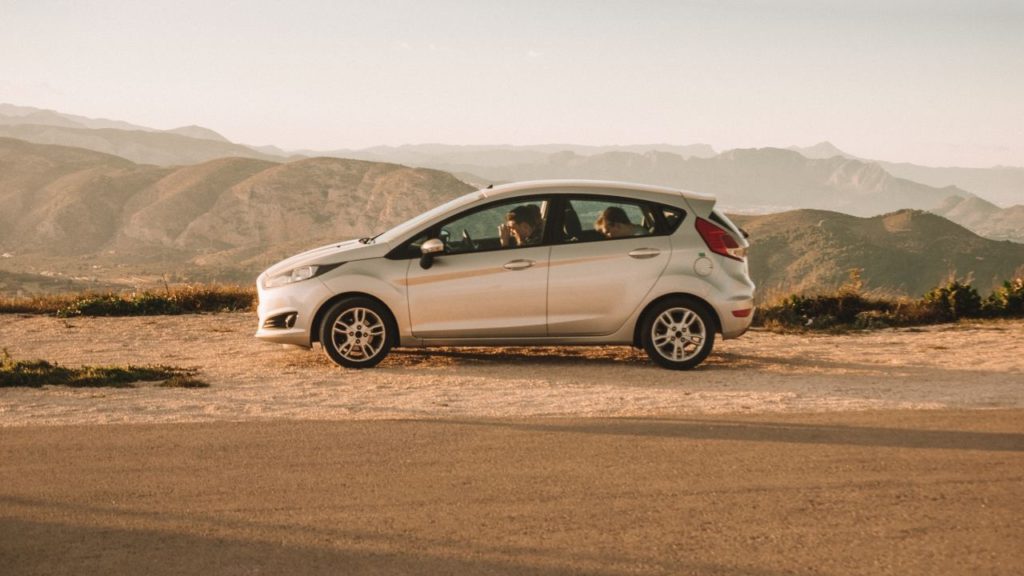
Hatchbacks are like a crossover of a sedan and SUV, but smaller. And that’s a good thing, especially if you want a fuel-efficient vehicle and you can easily drive, park, and still have enough boot space for out-of-town trips.
Pros
- Better visibility since the bonnet is shorter than a sedan
- More bootspace than a sedan
- Easy to fit things in the trunk
- Easy to drive around tight spaces
- Excellent fuel economy – recommended for city-driving.
Cons
- Compact and mini-compact versions offer less legroom and bootspace compare to full-size counterparts
- Not enough engine power for uphill roads and hauling
- Roof height is shorter, making it uncomfortable for taller individuals
SUV
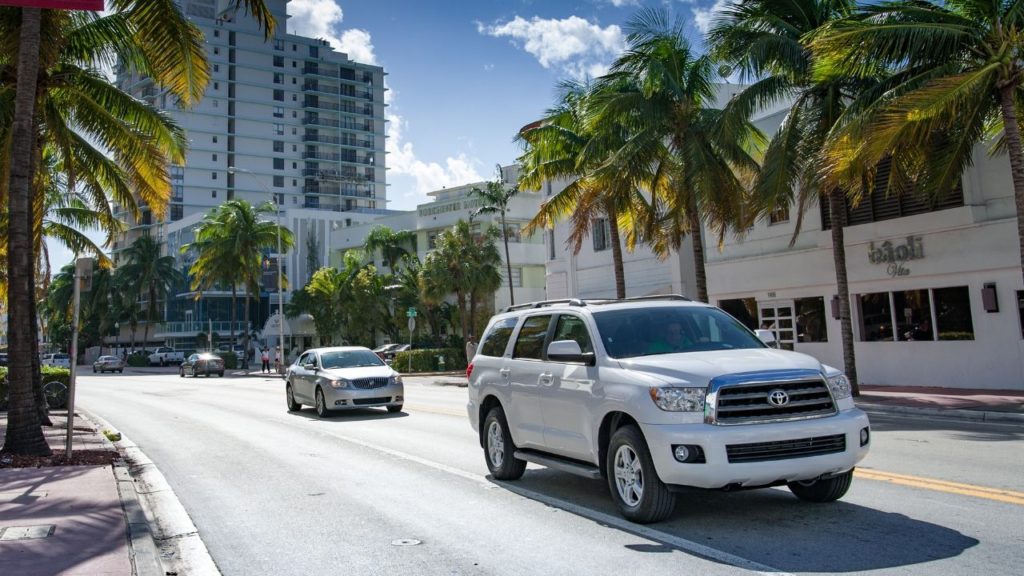
If your answer to the question “what car should I buy?” is an SUV, you aren’t the only one. SUVs accounted for more than 47% of sales in 2019. Sport utility vehicles of SUV is a beefed-up version of a sedan. It has more space (legroom and cargo) and is equipped with a more powerful engine for different driving situations.
Pros
- Comfortable legroom for all passengers
- Large cargo space than a sedan
- Good build quality, robust and durable
- Has enough towing power
- Reliable in different driving conditions
Cons
- More expensive than a sedan or hatchback
- Fuel efficiency depends on the model
- Larger body means more challenging to park and manuever
Pickup Truck
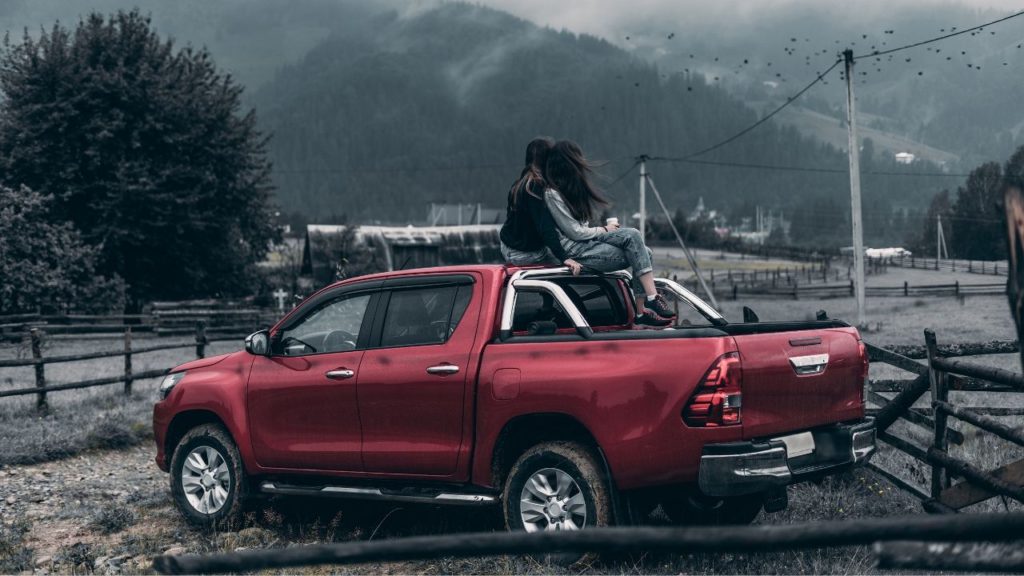
Pickup trucks are ubiquitous in the United States, and for a good reason. They’re versatile and durable, capable of doing lots of different tasks. They come in various sizes, can be fitted with a canopy, and can haul anything from small loads to large concrete slabs. As a matter of fact, pickup trucks claimed the top three spots for the best-selling vehicles in the United States.
Pros
- Large and powerful engine
- Very durable, can withstand long-term use
- Can haul lots of different items and large loads
- Capable for off-road driving
Cons
- Can be more expensive to buy and maintain if you want to get the most out of your pickup truck
- Lacks the city-friendly advantages of compact cars
Convertible
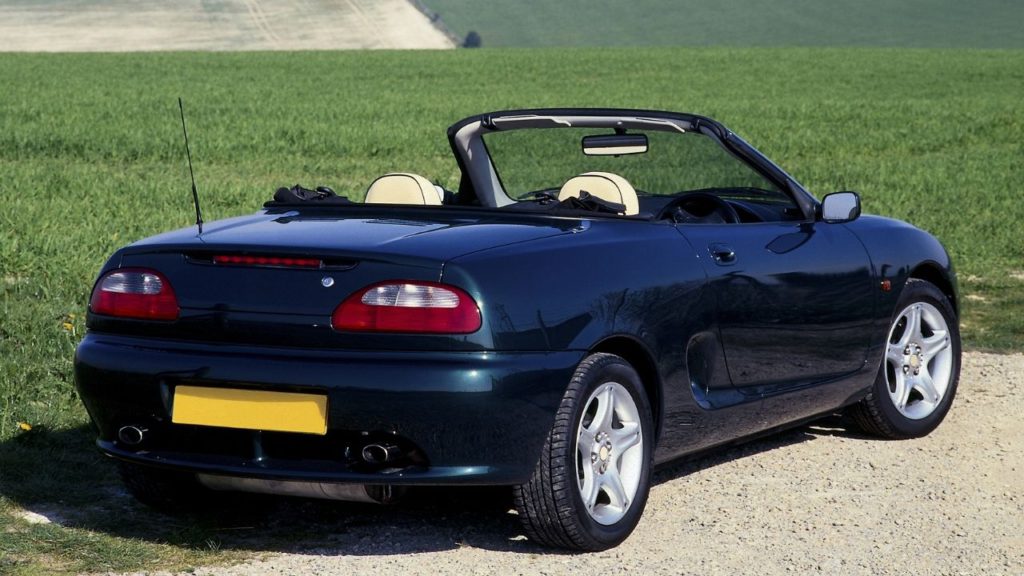
Convertibles are the ultimate way to feel the wind in your hair, but they’re not for everyone. Since convertibles have only a single roof layer, they leak and get damaged more quickly than their hardtop counterparts. Plus, they have tight legroom, especially if you opt for a two-door version.
Pros
- Attention-grabbing design and style
- More headroom if the roof is down
- Maneuverability comparable to a sedan
- High resale value
Cons
- Suscpetible to roof leaks
- Higher price
- Legspace can be limited
Coupe
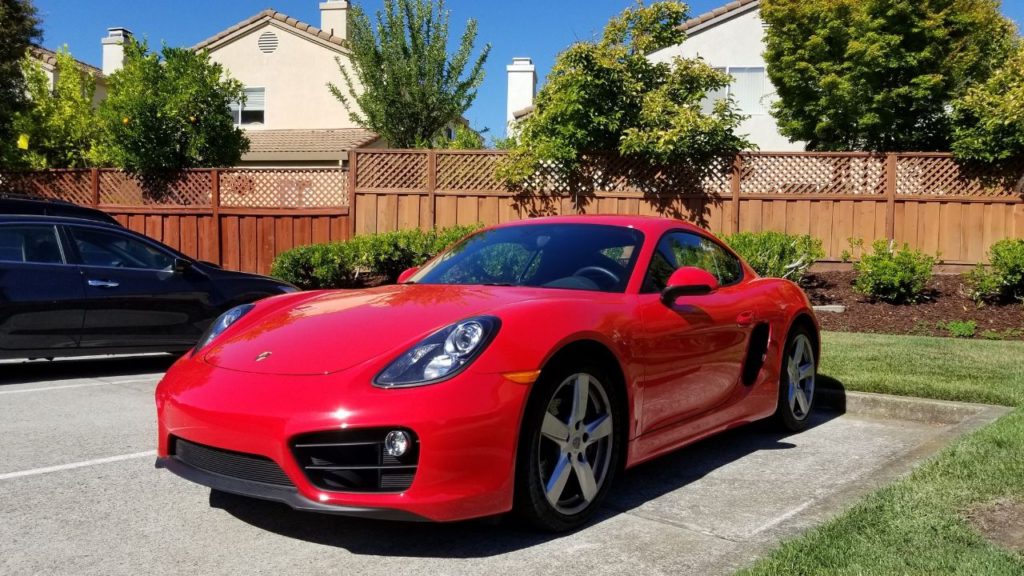
Coupes are the sportier versions of a sedan. Instead of having four doors, coupes have a two-door design for a sleeker appearance. Performance-wise, coupes offer a more pleasant experience thanks to their smaller dimensions. However, you’ll have to give up cargo space if you want to drive this vehicle.
Pros
- Sleek sporty design
- Excellent manuevaribility due to its smaller dimemsions
Cons
- Most models have a manual transmission
- Expensive
- Less interior space than a sedan
- Cargo space is also limited
- Back row is difficult to access
MPV

“What car should I buy if I have a family?” You should consider getting an MPV or multi-purpose vehicle. It can comfortably accommodate four to five persons with plenty of front and back legroom. Plus, you have ample cargo space at the back. Basically, an MPV is like a hatchback but bigger.
Pros
- Space inside for five people
- Can carry lots of cargo
- Economical, affordable
- Easy to drive and park
- Comfortable riding experience
Cons
- Lacks off-road performance
- Utilariatian and boring design
- Challenging to park because of its wide body
- High fuel consumption especially for gas variants
3. Consider Transmission, Engine Size, and Horsepower
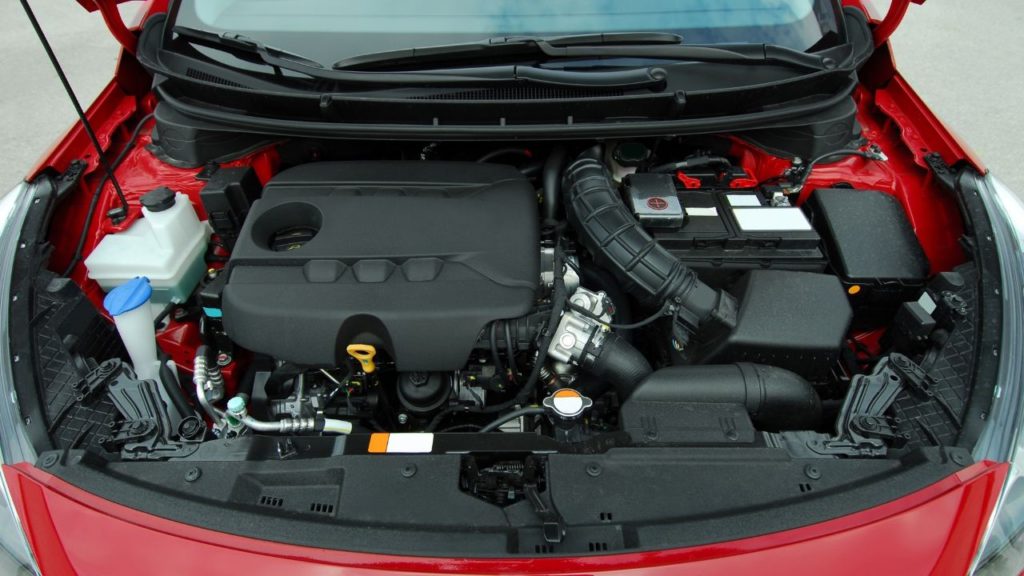
Transmissions come in three major varieties: manual, automatic, and continuously variable (CVT).
Manual transmissions have clutch levers, which the driver operates as needed. On the other hand, automatic transmissions allow drivers to control their transmission through a paddle shifter or console-mounted gear stick shift. Finally, the CVT (continuously variable transmission) allows drivers to change gear ratios on their own with the help of a button on the dashboard.
When deciding “what car should I buy?” you should also consider the engine size because it determines how much power you’ll have.
A large engine will give you more torque, which provides you with the ability to pull up to a higher speed easily but at the cost of horsepower and gas efficiency. On the other hand, a small engine takes longer to get up to speed. However, it makes excellent gas mileage, making it a perfect choice for city driving.
Pro Tip: The best engine size and horsepower will depend on your driving preferences, the type of roads you usually drive, and how far you travel in a day.
4. Check Fuel Consumption and Running Costs
The best cars are one’s that give you more than they take out of your pocketbook. To determine which cars will reduce your running costs and save you money on gas, you’ll want to calculate two things – how many miles you drive each week and what kind of fuel you use.
A car’s fuel consumption will also depend on how you drive it. Small cars are more fuel-efficient than large vehicles, so choose wisely to see which makes the most sense for your driving needs. Some vehicles, such as hybrids, get much better fuel consumption than regular fuel-powered cars. They also cost more upfront, but they will save you money on gas and maintenance costs in the long run.
5. Inspect Safety Features
When thinking about “what car should I buy?” you should also ask, “how safe is this car?” and make it a top priority. Luckily, most modern cars have a comprehensive array of safety features that can keep you and your family safe. For instance, most cars have full-length side airbags, traction control, and anti-lock braking systems (ABS).
Pro Tip: If you’re considering a vehicle with a manual transmission, you’ll want to make sure your car has an electronic locking center differential to help prevent skidding in wet and slippery conditions.
6. Consider Other Features
Cars are not just basic transportation devices; they’re also mobile entertainment centers. Features like USB ports and Bluetooth connections are perfect for music lovers, while built-in navigation systems are great if you’re often in unfamiliar parts of town.
Among the features you should consider are power windows, tinted windows, a central locking system, an immobilizer, and seat belt warning lights. You’ll also want to see if your car has a temperature gauge, digital display instruments, and so on.
7. Take It Out for a Spin
The last step in “what car should I buy” is test driving the car. Car dealers offer a free test drive, wherein you can take the vehicle to purchase out for a spin – typically around 15-30 minutes. A sales agent will also accompany you.
Don’t skip this part because you will use this vehicle for the next four to five years! And, this is your only chance to assess if it’s the right fit in terms of comfort and driveability.
Conclusion
Buying a new or used car is a big investment, and the last thing you’d want is to end up with a vehicle that guzzles gas and is uncomfortable for you and passengers. Don’t forget. It’s possible to get a great car on a budget – all it takes is some research and attention to detail! We hope this post answers the questions: What car should I buy? What kind of car should I get?
